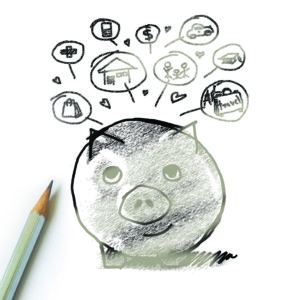Trending
Home Eq•ui•ty (n.): Raising your stake in home ownership
February, 2017

For many of us, buying a home is the largest, most important investment we will ever make. We can spend years saving for a down payment, months searching for the perfect property and days (or even weeks) negotiating the right price. When the deal is done, however, we are homeowners! Well, not entirely. What we actually own is equity—here we explore the ins and outs of this valuable asset.
What Is Home Equity?
Equity is the value of an asset minus any and all liabilities on that asset. When the asset you’re talking about is your home, you’re talking about home equity. To calculate that equity, take your home’s current market value (what your home is worth on the market today) and subtract what you still owe on your home (the balance of your mortgage). That magic number is how much equity you have in your home—or how much of your home you actually own.
How to Build It
Home equity increases as you pay down your mortgage, and it also increases when the market value of your property increases. Therefore, the equity in your home grows over time. If you’re not a fan of waiting and would like to build your home equity more quickly, there are some things you can do.
The most obvious is to put more money on your principal (the amount you still owe on your mortgage, not including the interest). You can do this by putting down the largest down payment you can afford, by shortening the term on your mortgage when you refinance or by making extra payments on your mortgage when you can afford to (depending on the conditions of your mortgage).
Home improvements are another way to build equity in your home. The key with this tactic is to make sure that the value of your renovations exceeds the cost of doing them. Updating your kitchen cabinets, countertops and appliances will often help increase your home’s value. Additions such as an extra bedroom or bathroom are also smart improvements you can make to build equity in your home.
Why It’s so Valuable
Home equity is a valuable asset because it’s your share of your property—as in, it’s the value of your property that you have paid down and truly own (as opposed to portion that your lender owns). For this reason, you can put the equity you’ve built in your current home towards purchasing your next home, or you can borrow against it if you need extra cash or are making another investment.
Home Equity Loan Vs. Home Equity Line of Credit
If you are considering borrowing against the equity in your home, you have two options: going with a home equity loan (a.k.a., a second mortgage) or going with a home equity line of credit (HELOC).
With a home equity loan, you are borrowing a lump sum of money that you get all at once and at a fixed interest rate. When paying back your home equity loan, you make equal monthly payments.
A HELOC is a little different. Because it’s a line of credit, you can make multiple withdrawals up to your limit (so you don’t have to take the entire sum at once like a traditional loan). HELOCs also come with variable interest rates, and you can pay back as much of the balance as you want as quickly as you want (as long as you are making your minimum interest payments, of course).
Whether you choose a home equity loan or a HELOC, it’s important to understand the risks. For most homeowners, that boils down to this: Never borrow more than you can afford because if you can’t keep up with your loan payments, you risk losing your home.
So there you have it—more home equity equals a brighter financial future. Time to pay down that principal! t8n
Fun Fact
Many people think opting for a 15-year term on a mortgage instead of a standard 30-year term will double their payments, but that’s not necessarily so. Next time your mortgage is up for renewal, ask your lender to crunch the numbers. A shorter-term mortgage may cost only a few hundred dollars more each month.
Did You Know?
Wondering about fixed and variable interest rates? With a fixed-rate loan, the interest amount stays the same for the entire term (so you pay the same amount each month). The interest amount on a variable-rate loan will vary over time, fluctuating with the market.













